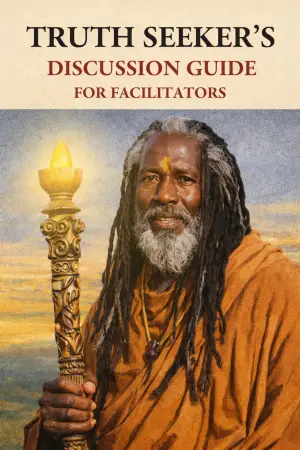Finding Courage in Darkness: A Review of Allison Buccola’s The Ascent
There’s something incredibly magnetic about a novel that promises to delve deep into the shadows of trauma and identity, and that’s exactly what drew me to The Ascent, Allison Buccola’s sophomore offering. The early whispers of its intricate plot and psychological depth pulled me in, but what kept me turning the pages was Lee Burton’s powerful journey through fear, motherhood, and her buried past. Buccola expertly crafts a narrative that unfurls the layers of trauma that ripple through generations, wrapping readers in a story that is as unsettling as it is enlightening.
At the heart of The Ascent is Lee Burton, the sole survivor of a cult disappearance that haunts her even decades later. Now a new mother grappling with severe postpartum anxiety, her seemingly stable life spirals into chaos when a woman claiming to be her long-lost sister appears. This premise sets the stage for a gripping psychological cat-and-mouse game that peels back the layers of Lee’s traumatic past while confronting the very real threats of her present. Buccola’s portrayal of maternal anxiety struck a chord with me; the depiction of Lee’s hyper-vigilance regarding her infant daughter, Lucy, resonates with the all-too-familiar fears many new mothers face.
One of the standout features of this novel is Buccola’s sophisticated narrative structure. The alternating timelines, oscillating between Lee’s current struggles and harrowing flashbacks to her time at Jacob’s Hill, masterfully build suspense. It’s a slow burn, but one that paves the path for an intense emotional payoff. The pacing in the early chapters serves as a contemplative groundwork, allowing readers to fully appreciate the weight of Lee’s fears before plunging into the revelations that await.
Lee emerges as a painfully relatable unreliable narrator. Her psychological vulnerabilities make her sympathetic yet complex, and I found myself both rooting for her and questioning her choices. Buccola deftly balances Lee’s battles with mental health while exploring the supporting cast with equal depth, particularly Theo, her husband, who seamlessly shifts from devoted partner to a potentially dubious figure. The nuanced development makes every interaction—especially the fraught dialogues with the enigmatic “Mona”—tense and enthralling.
Equally compelling are the themes woven throughout The Ascent. Buccola does not shy away from a candid exploration of postpartum experiences and the societal dismissal of maternal anxiety. Her portrayal resonates deeply, reflecting how maternal instincts, colored by past trauma, are often labeled as paranoia. This exploration, alongside the intricacies of cult survival, enriches the narrative with layers of social commentary that extend beyond the realms of a psychological thriller.
Although Buccola’s technical mastery shines through, there were moments where the pacing felt a tad inconsistent. Some therapy sessions and anxiety spirals, while soundly reflective of reality, occasionally slowed the forward momentum. Additionally, the climax, though emotionally satisfying, introduces a few plot elements that stretch credulity, which may leave some readers wanting tighter resolutions to certain threads.
In conclusion, The Ascent is a gripping and thought-provoking read that marries suspense with a profound examination of trauma, motherhood, and identity. Buccola’s ability to carve out complex characters and intertwine their lives with broader societal issues makes this novel a worthy addition to anyone’s bookshelf. If you appreciate psychological thrillers that offer both gripping tension and deep emotional exploration, this book will resonate with you. It certainly lingers in my thoughts long after the last page was turned, leaving me eager for Buccola’s next exploration into the shadows that inhabit our lives.






